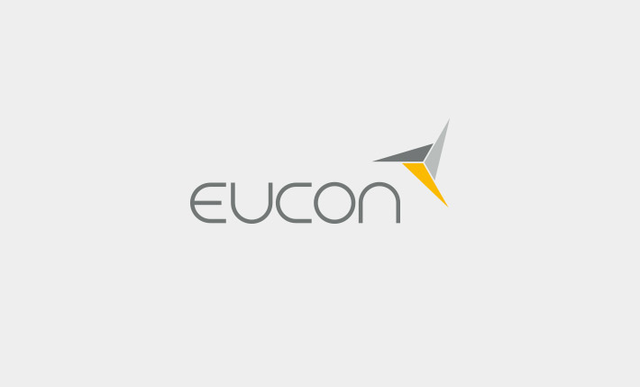A look inside our Company
Get the latest news. Contact us to learn more about Eucon and our digital solutions.
Contact us
Tuesday, 06 February, 2018
The future of automobile claims management: An automation rate of 90 percent
Guest commentary by Eucon CEO Sven Krüger published in German in the journal “Zeitschrift für Versicherungswesen” 3/18
For automobile insurers, digitalization marks the beginning of a new era. Besides rising competitive and cost pressure, the aim its to meet new digital customer requirements and adjust to innovative mobility concepts. The digital reframing of the industry is also redefining opportunities and risks. Above all, claims management as a critical interface to the customer offers manifold opportunities to improve one’s own market position: New technologies will make the settlement of claims easier, faster and more efficient.

This is not only an efficient tool for insurance companies that allows them to reduce costs and optimize the workload, but also a genuine argument to improve customer loyalty in the long run and to retain a new generation of digital customers. To manage the technology leap from manual claims management to consistently digitalized settlement processes, insurance companies need to bid farewell to traditional structures and seek new ways of collaboration.
From the automobile to the digital data room
The automotive industry is changing tremendously fast: The car is no longer a conventional means of transport, but is transforming more and more into a data room on four wheels. As part of an integrated mobility system, vehicles will increasingly communicate, capture and exchange data in an automated way. As a result, in automobile claims management, the process will become significantly shorter, starting with the damage report all the way to the settlement of a claim. From a customer’s perspective, this development is long overdue.
Claims settlement in less than three hours
Consumer research shows: Customers are repelled more and more by the red tape they need to surmount when filing a claim with their insurance company the traditional way. What they also expect from their insurance company are continuous digitalized end-to-end processes, which they are already familiar with from shopping platforms and the online purchase of books. Customer requirements are no longer impacted by competitors within the industry, but shaped by the service experience in their digital everyday reality. Amazon and Google are setting the benchmark here.
Digital technologies allow insurers to easily handle complex processes and to turn the claims settlement into a smart customer experience. To an increasing extent, customers will simply transmit photos of the damage and details relating to the accident via their insurer’s app and receive information on the claim amount soon after. Then, they can decide whether this amount should be paid out or if they want to get their car fixed at the workshop. In the future, the majority of automobile claims processes will be settled within less than three hours. In order to be able to fully tap the efficiency and service potential, insurance companies need to have the corresponding digital infrastructure in place – or to seek support from experienced partners.
Using artificial intelligence
Artificial intelligence (AI) and machine learning have become part and parcel of claims management, too. As a result, recurring, manual and widely standardized processes such as data extraction and classification, document analysis or the routing of claims to the person in charge will be aided by intelligent and self-learning systems. This saves time and costs and frees up significant resources. In addition, this entails shorter processing times and increases customer satisfaction. With the use of AI and the associated faster processing of large data volumes, processes can be automated all the way up to complete black box processing. What is more, modern analytics open up new opportunities in data analysis and usage. The aim is to interpret data at a new level and to derive recommendations for action by recognizing patterns, e.g. for damage appraisal.
Increasing degree of automation
AI and analytics allow insurance companies for the first time to route damage events and the associated use cases and documents in a more targeted way, and to avoid unnecessary process steps. This includes an early recognition of cases that do not require review as well as potentially fraudulent cases. These developments lead to an increase in the degree of automation and a decrease in the number of appraisers and loss adjusters: We assume that in the future, only approx. 10% of documents will have to be checked by humans. In black box processing, up to 90% of the documents can be processed entirely automatically using digital end-to-end processes. Only the verification of complex automobile claims will be reserved for highly qualified experts. Yet if insurers seek to tap these efficiency and service potentials, they need to be better networked.
Cross-industry network
In the future, automotive insurers will not be able to offer silo solutions anymore. The explosive increase in networking in the field of connected mobility and cross-industry data usage will revolutionize the way claims will be settled in the future. Single players will not be able to exploit the enormous potential on their own; the trend is towards networking of all involved parties via digital ecosystems.
Already today, new business models and service offers are emerging in cooperation with established insurance companies, newcomers and service providers from closely related industries. “Lone warriors” among insurers will not be able to realize such offers. Industry knowledge, digitalization expertise and data intelligence continue to be the key factors of successful claims management.
The article was published in the journal "Zeitschrift für Versicherungswesen".
(Download in German as PDF)
Written by Eucon Digital

